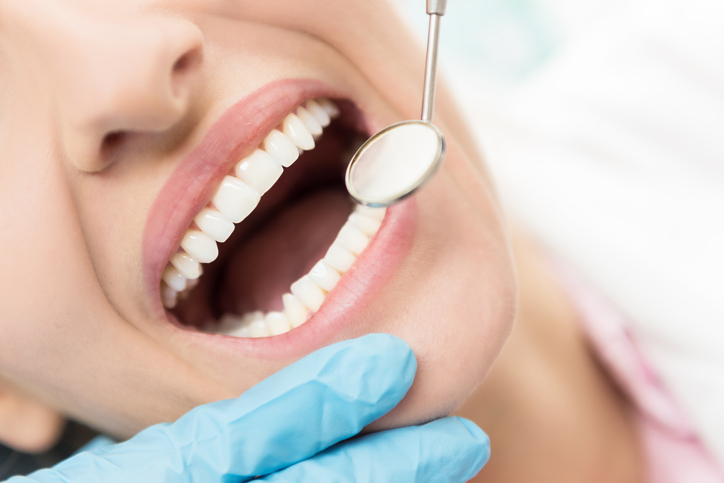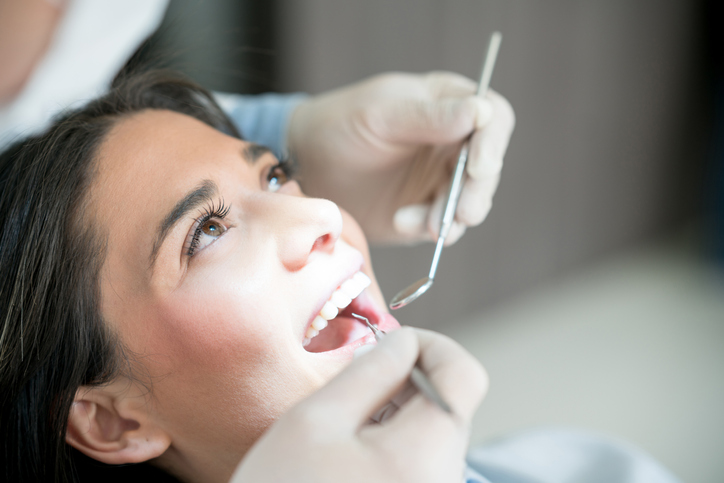-
Common Oral Health Issues for HIV/AIDS Patients

Human immunodeficiency virus (HIV) and acquired immunodeficiency syndrome (AIDS) cause a number of serious health complications. If you’ve been diagnosed with HIV, your dentist will become an important member of your HIV care team. It’s common for HIV patients to experience certain oral health complications, such as oral warts, oral thrush, and hairy leukoplakia. Call your dentist promptly if you notice any unusual changes with your mouth. You should also be aware that changes in your oral health may indicate an underlying change in your immune status. Notify your primary physician accordingly.
Oral Warts
Oral warts are caused by human papillomavirus (HPV). People with a suppressed immune system are more likely to develop them. The warts themselves aren’t typically painful. However, they may become uncomfortable if they are irritated from food or accidental biting. Oral warts look like smooth or raised blemishes. They can develop anywhere in the mouth or tongue. If you have bothersome oral warts, your dentist can remove them with a laser or cryosurgery.
Oral Thrush
Oral thrush is a fungal infection that results in white lesions. You’ll typically see them on the tongue or the insides of the cheeks. Occasionally, the lesions may spread to other areas, like the roof of the mouth. Other symptoms may include a cottony feeling in the mouth, loss of taste, and difficulty eating. Your dentist may recommend an antifungal medication.
Hairy Leukoplakia
Hairy leukoplakia is the result of the Epstein-Barr virus. Since individuals with HIV have weakened immune systems, they are more susceptible to developing it. If you have hairy leukoplakia, you’ll notice white, hairy patches on the tongue. These will resist your efforts to remove them with a toothbrush. Hairy leukoplakia could be a sign that your doctor needs to adjust your current HIV treatment. An antiviral drug may be prescribed to clear up the white patches.
Your health, wellness, and safety are our top priorities here at Glenwood Premier Dental. Our dentists serving Hazlet encourage each of our patients to share information about their underlying medical conditions so that we can customize an appropriate oral care plan that suits your needs. New and current patients can call (732) 264-4477 for an appointment.
-
What to Expect at Your First Invisalign Consult
Invisalign is a household name, but many patients aren’t quite sure of how the process works. It all starts with a consultation at an Invisalign provider’s office. The dentist will take dental X-rays and do a scan of your teeth. These images are transmitted to the Invisalign software platform. You’ll be able to see the 3D rendering of what your smile will look like after you’ve completed your treatment.
To learn more about this process, you can watch the accompanying video. Be sure to bring your questions to your consultation. Your cosmetic dentist will help you understand the treatment process and learn how to care for your new aligners.
Glenwood Premier Dental is pleased to provide Invisalign treatment in Hazlet because we’ve seen how effective it is at transforming our patients’ smiles. Become our next success story and call our office today at (732) 264-4477.
-
What Are Dental Implants Made From?

Implant dentistry is the preferred method of restoring a smile when the patient has missing teeth. Unlike dentures, dental implants are permanently anchored into the jawbone. Dental implants have actually been used for hundreds of years, but it wasn’t until relatively recently that cosmetic dentists discovered the ideal material and method for them. Modern-day implants are made of titanium or titanium alloys. This material was selected because the bone can fuse to it in a process called osseointegration. Osseointegration enables the implant to act just like a natural tooth root.
The titanium post is the part of the implant that isn’t visible, since it’s placed directly into the bone. An abutment, or connector, attaches to the implant. It can be made from titanium, gold, or surgical stainless steel. On top of that rests the crown, which is the visible portion of the implant. The crown is usually made from ceramic, and it looks just like a natural tooth.
For high-quality implant dentistry near Hazlet, you can turn to the team at Glenwood Premier Dental. Call (732) 264-4477 to request an appointment and find out if you’re a good candidate for smile restoration with dental implants.
-
Will My Receding Gums Grow Back?

Gum recession is a serious oral health problem. It’s also quite common. Unfortunately, once you’ve lost gum tissue, you can’t grow it back. But this doesn’t mean the condition can’t be treated. Your dentist will evaluate your mouth and recommend an appropriate course of periodontal care.
Scaling and Root Planing
Scaling and root planing may be an effective treatment for patients whose gingival recession is caused by gum disease. This treatment is an intensive, deep-cleaning procedure that removes accumulated calculus beneath the gum line. The dentist or hygienist will use an ultrasonic scaling device, followed by a manual instrument. Scaling and root planing can manage the inflammation of the gum tissue. While it won’t regenerate new gum tissue, it may encourage the remaining gum tissue to reattach to the teeth.
Gum Graft Procedure
If you’ve lost a great deal of gum tissue, then you may need a surgical treatment called a gum graft. This procedure doesn’t take long to complete. In most cases, only local anesthesia is needed. The dentist will remove a small amount of tissue from the roof of your mouth and suture it to the gum line to build up the tissue that covers your teeth.
Denture Adjustment
It’s possible for a partial denture to lead to gum loss if it doesn’t fit properly. If you wear dentures and you’ve noticed that your teeth are looking longer than usual because of gum loss, talk to your dentist. You may benefit from an adjusted denture or a newly made denture.
Mouthguard Use
In some patients, gingival recession is caused by bruxism or teeth grinding. Teeth grinding can also cause other problems, like jaw pain and TMJ disorder. Your dentist can help you overcome this problem with a custom-fitted mouthguard that you’ll wear at night.
If you have gingival recession or gum disease near Hazlet, you can receive the specialized periodontal care you need at Glenwood Premier Dental. Call (732) 264-4477 to request a consult at our judgment-free office. Our team prides itself on delivering compassionate care that is personalized to each patient’s unique needs and lifestyle.
